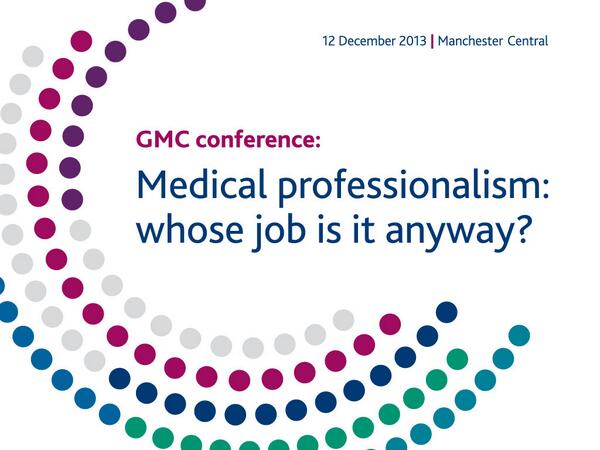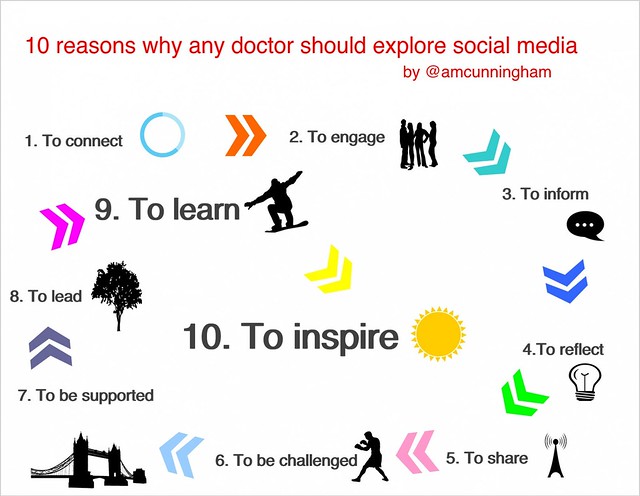 |
| Add caption |
Fast forward to 2013 and the first national GMC conference on 'Medical professionalism : whose job is it anyway?' is held today in Manchester with 400 attendees- over 50% of them medical students and jobbing doctors, but with other stakeholders including patients well represented. There is an official conference hashtag #gmcconf and it is used more than 1500 times today. Throughout the day there is reference to taking questions from tweets and no-one seems to be in any way surprised.
I make about 1/2 the tweets I do at the last event, in part because this time I was giving a lunch-time seminar with Gareth Williams from the GMC office in Cardiff on the social media in practice. A strong conference theme is the nature of professionalism in a post Berwick and Francis report world and so my part of the session focussed on how social media is being used to drive improvement and ensure patient safety by doctors in the UK today.

I concentrated on a few stories - Elin Roddy's experiences of learning and reflecting in social media which lead to her taking on the role of lead for End of Life care in her trust ; raising patient safety through openness and transparency of sharing the #Wrongfooted storify ; NHS Change Day ; the FOAMed initiatives of ECGClass, Gasclass and TeamHaem ; and Kate Granger's #HelloMyNameIs campaign.
A few years ago I was not confident that I could justify urging every doctor to explore social media. But it is now beyond doubt that some of the most innovative, creative and transformative conversations about improving the care of and with our patients are happening within social media.
We must ask ourselves what we can do to help our colleagues and students be part of these conversations.
